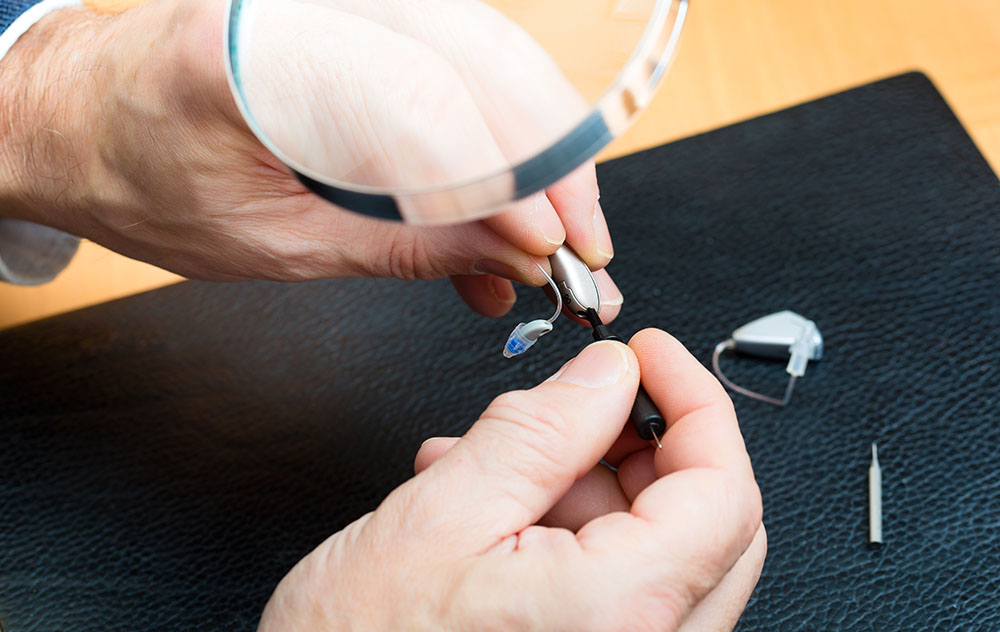
Preventing Hearing Aid Repairs
You and your hearing aids have a close relationship. You wear and use them every day. They are a part of you and your life. So what happens if all of a sudden they stop working? What do you do? Can you fix the problem on your own or do you need to see your audiologist? Here are a few things to remember when it comes to your hearing aids and repairs.
Preventing hearing aid repairs
It is easy to prevent repairs to your hearing aids. The most important thing, when it comes to preventing repairs, is daily cleaning and maintenance for your hearing aids. Like everything else in your life, if you care for them properly, your hearing aids are no different and will last a lot longer. Cleaning your hearing aids every time you take them out of your ear is important; this helps to prevent wax buildup on and in your devices. Cleaning them after every use also helps to prevent depositing or redepositing dirt, debris or foreign objects into your ear.
Examine your hearing aids
It is important to always look over your hearing aids as well. Check to make sure there are no cracks or wax buildup in or on the hearing aid. Examine the tubing to ensure there is no moisture, cracking or disfiguration. Inspect the battery or charge to ensure you will not be stuck somewhere with them unusable when you really need them. Review the programs and functions of the hearing aid to ensure they are responding and working as you need them to. Know your hearing aid inside and out so that you can easily determine when there is an actual problem as opposed to a dead battery.
Visit your audiologist for repairs
Seeing your audiologist regularly is important to maintaining your hearing aid and preventing repairs. Your audiologist can go over and check your hearing aids to ensure that they are running and working in optimal shape. They will also be able to make adjustments to programs or settings as needed. By having your audiologist periodically examine your hearing aids, they’ll be able to keep on top of any changes, damage or problems, which could help preserve the life of them.
To ensure your devices are operating as well as they should be, and to help prevent costly hearing aid repairs, follow a proper care and maintenance plan.

